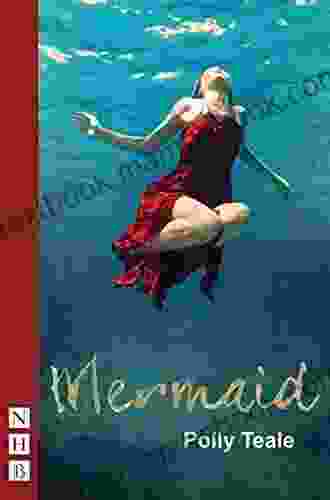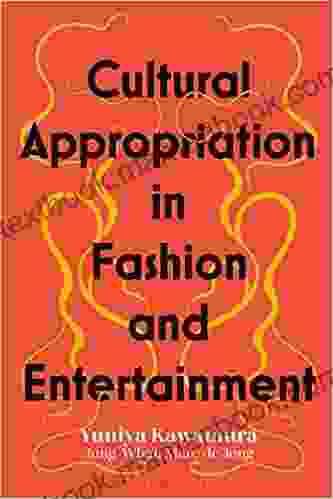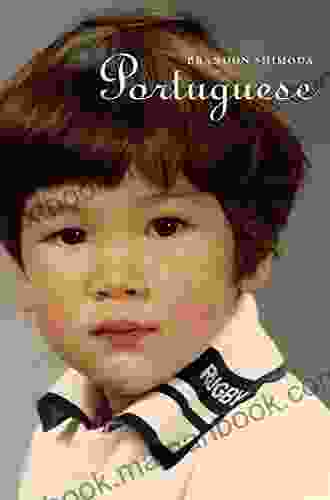Cultural Appropriation in Fashion and Entertainment: A Comprehensive Analysis

In the interconnected world of today, fashion and entertainment have emerged as powerful platforms for cultural exchange. However, the lines between appreciation and appropriation have blurred, leading to contentious debates about the ethics of borrowing from other cultures.
4.7 out of 5
| Language | : | English |
| File size | : | 9124 KB |
| Text-to-Speech | : | Enabled |
| Enhanced typesetting | : | Enabled |
| Word Wise | : | Enabled |
| Print length | : | 241 pages |
| Screen Reader | : | Supported |
Cultural appropriation, the adoption or use of elements from a culture by members of another culture, has become a prevalent phenomenon in contemporary society. This article aims to provide a comprehensive analysis of cultural appropriation in fashion and entertainment, examining its historical roots, various forms, and ethical implications.
Historical Roots
Cultural appropriation has its roots in colonialism and imperialism. As Western powers expanded their empires, they encountered diverse cultures and sought to assert their dominance by adopting and modifying cultural elements from conquered societies.
This process of cultural borrowing often involved the commodification and exploitation of indigenous traditions. For example, Native American headdresses, once symbols of spiritual significance, were transformed into fashion accessories for non-Native Americans.
Forms of Cultural Appropriation
Cultural appropriation manifests in various forms in fashion and entertainment:
- Direct Imitation: Copying or replicating cultural elements without understanding or acknowledging their significance.
- Stereotyping: Portraying members of a particular culture in a simplistic or caricatured manner.
- Commodification: Selling cultural elements as fashion accessories or entertainment products without benefitting the original creators.
- Tokenism: Hiring or featuring members of marginalized groups as a superficial representation of diversity without addressing underlying systemic issues.
Ethical Implications
Cultural appropriation raises a range of ethical concerns:
- Disrespect: It can be seen as disrespectful to borrow from other cultures without understanding or acknowledging their history and significance.
- Exploitation: Cultural appropriation can perpetuate the exploitation of marginalized communities by commodifying their traditions.
- Oppression: It can reinforce stereotypes and power imbalances, perpetuating the oppression of marginalized groups.
- Authenticity: It undermines the authenticity and integrity of cultural traditions when they are appropriated by outsiders.
Examples in Fashion
Cultural appropriation in fashion has been widely discussed:
- Gucci's Blackface Sweater: In 2019, Gucci apologized for a sweater featuring a design that resembled blackface.
- Victoria's Secret's Native American Lingerie: Victoria's Secret faced backlash for using Native American headdresses in its fashion shows.
- Kim Kardashian's Bantu Knots: Kim Kardashian has been criticized for wearing Bantu knots, a traditional African hairstyle.
Examples in Entertainment
Cultural appropriation in entertainment also extends to:
- Madonna's "Vogue": Madonna's 1990 music video "Vogue" was accused of appropriating African-American dance culture.
- Quentin Tarantino's "Django Unchained": Tarantino's 2012 film "Django Unchained" was criticized for its use of African-American stereotypes.
- Disney's "Pocahontas": Disney's 1995 animated film "Pocahontas" was criticized for its inaccurate portrayal of Native American history and culture.
Balancing Appreciation and Appropriation
Navigating the complexities of cultural appropriation requires a careful balance between appreciation and appropriation. It is important to:
- Educate yourself: Learn about the history and significance of cultural elements before using them in your own work.
- Respect the source: Acknowledge the cultural origins of elements you borrow and give credit to the original creators.
- Consider the impact: Be mindful of how your use of cultural elements may be perceived by members of the culture from which they originated.
- Promote authenticity: Support indigenous artists and businesses to ensure that cultural traditions are preserved and celebrated in their original context.
Cultural appropriation in fashion and entertainment is a complex and multifaceted issue. It is important to approach this topic with sensitivity and a deep understanding of the historical and ethical implications involved. By fostering respectful appreciation and avoiding exploitation, we can create a more inclusive and equitable global cultural landscape.
Remember, true appreciation involves recognizing and honoring the diversity of human cultures while preserving their authenticity and integrity.
4.7 out of 5
| Language | : | English |
| File size | : | 9124 KB |
| Text-to-Speech | : | Enabled |
| Enhanced typesetting | : | Enabled |
| Word Wise | : | Enabled |
| Print length | : | 241 pages |
| Screen Reader | : | Supported |
Do you want to contribute by writing guest posts on this blog?
Please contact us and send us a resume of previous articles that you have written.
 Top Book
Top Book Novel
Novel Fiction
Fiction Nonfiction
Nonfiction Literature
Literature Paperback
Paperback Hardcover
Hardcover E-book
E-book Audiobook
Audiobook Bestseller
Bestseller Classic
Classic Mystery
Mystery Thriller
Thriller Romance
Romance Fantasy
Fantasy Science Fiction
Science Fiction Biography
Biography Memoir
Memoir Autobiography
Autobiography Poetry
Poetry Drama
Drama Historical Fiction
Historical Fiction Self-help
Self-help Young Adult
Young Adult Childrens Books
Childrens Books Graphic Novel
Graphic Novel Anthology
Anthology Series
Series Encyclopedia
Encyclopedia Reference
Reference Guidebook
Guidebook Textbook
Textbook Workbook
Workbook Journal
Journal Diary
Diary Manuscript
Manuscript Folio
Folio Pulp Fiction
Pulp Fiction Short Stories
Short Stories Fairy Tales
Fairy Tales Fables
Fables Mythology
Mythology Philosophy
Philosophy Religion
Religion Spirituality
Spirituality Essays
Essays Critique
Critique Commentary
Commentary Glossary
Glossary Bibliography
Bibliography Index
Index Table of Contents
Table of Contents Preface
Preface Introduction
Introduction Foreword
Foreword Afterword
Afterword Appendices
Appendices Annotations
Annotations Footnotes
Footnotes Epilogue
Epilogue Prologue
Prologue Stephen Parkes
Stephen Parkes C J Peterson
C J Peterson Tetyana Denford
Tetyana Denford Dennis J Henson
Dennis J Henson Marc Cameron
Marc Cameron Susan Risha
Susan Risha Ian Mcdonnell
Ian Mcdonnell James P Farwell
James P Farwell Piers Anthony
Piers Anthony Roman Kmenta
Roman Kmenta Alex S Vitale
Alex S Vitale Margo Bond Collins
Margo Bond Collins La Sha Wright
La Sha Wright Roberta Gellis
Roberta Gellis Anita Moultrie Turner
Anita Moultrie Turner Eric Clapton
Eric Clapton Donald R Prothero
Donald R Prothero Joanne B Freeman
Joanne B Freeman Shoshana Berger
Shoshana Berger Laura Brand
Laura Brand
Light bulbAdvertise smarter! Our strategic ad space ensures maximum exposure. Reserve your spot today!

 Shawn ReedUnmasking the Phantom: The Hunt for the Most Meticulous Serial Killer of the...
Shawn ReedUnmasking the Phantom: The Hunt for the Most Meticulous Serial Killer of the...
 Connor MitchellFrom Dance Hall To The 100 Club: A Musical Journey Through Ashgate Popular...
Connor MitchellFrom Dance Hall To The 100 Club: A Musical Journey Through Ashgate Popular...
 Herbert CoxRogues King Slater Thriller: The King Slater 12 Embarks on a Spine-Tingling...
Herbert CoxRogues King Slater Thriller: The King Slater 12 Embarks on a Spine-Tingling... Corey HayesFollow ·9.7k
Corey HayesFollow ·9.7k Finn CoxFollow ·5k
Finn CoxFollow ·5k Vladimir NabokovFollow ·18.4k
Vladimir NabokovFollow ·18.4k W.B. YeatsFollow ·12.7k
W.B. YeatsFollow ·12.7k Colin RichardsonFollow ·9.3k
Colin RichardsonFollow ·9.3k Yasushi InoueFollow ·6k
Yasushi InoueFollow ·6k Billy PetersonFollow ·18.3k
Billy PetersonFollow ·18.3k Juan RulfoFollow ·8k
Juan RulfoFollow ·8k

 Forrest Reed
Forrest ReedHulusi Darende's Poems: Unraveling the Lyrical Tapestry...
: A Journey into the Heart of Sufi...

 Gabriel Blair
Gabriel BlairAct of Terror: A Jericho Quinn Thriller
In the heart-pounding...

 Zadie Smith
Zadie SmithScales for Strings Teacher Manual: A Comprehensive Guide...
Scales are fundamental building blocks of...

 Hugo Cox
Hugo CoxMermaid (NHB Modern Plays) Polly Teale
The Mermaid NHB Modern Plays series, a...
4.7 out of 5
| Language | : | English |
| File size | : | 9124 KB |
| Text-to-Speech | : | Enabled |
| Enhanced typesetting | : | Enabled |
| Word Wise | : | Enabled |
| Print length | : | 241 pages |
| Screen Reader | : | Supported |









